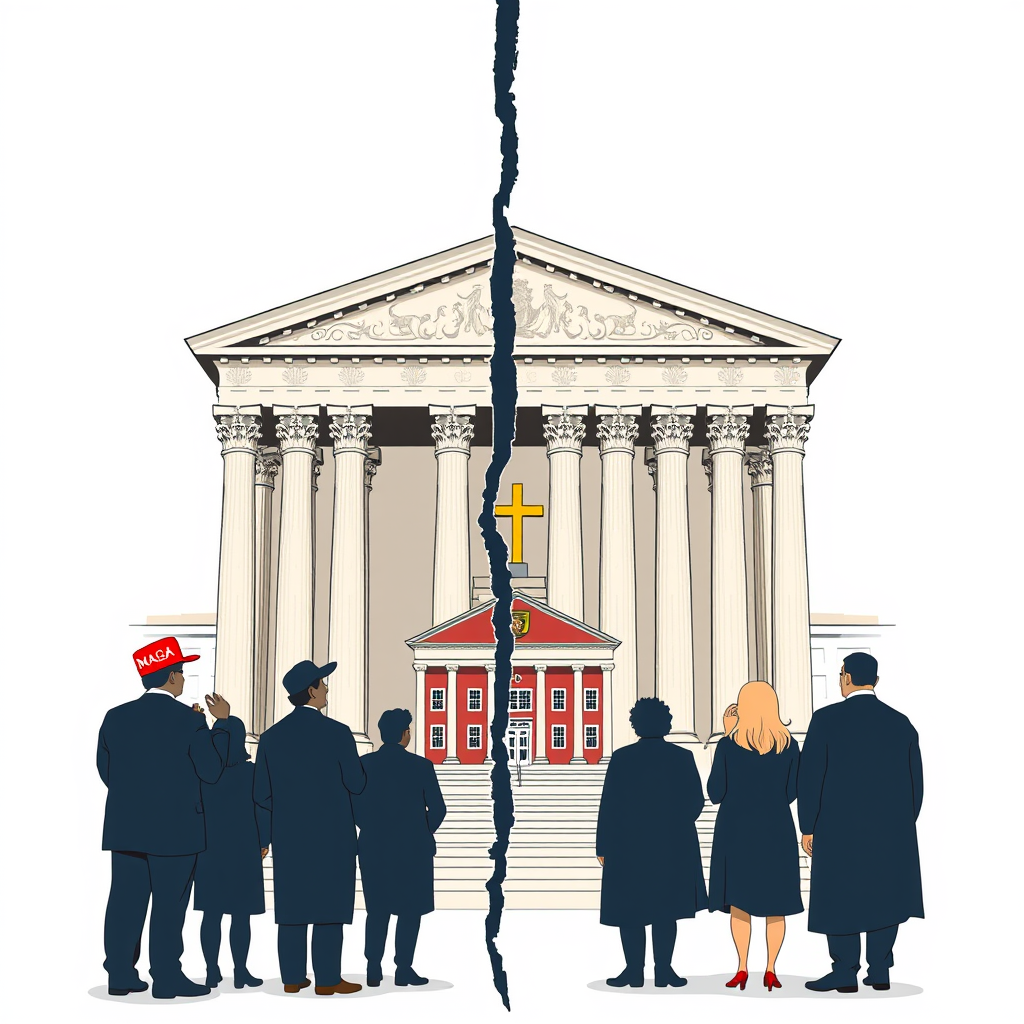Supreme Court Ruling Enrages Trump’s Supporters

A divided Supreme Court failed to rule in favor of public funding for a religious charter school in Oklahoma, triggering a wave of outrage from staunch supporters of Donald Trump and the conservative movement. The 4-4 tie announced Thursday leaves existing precedent intact and denies St. Isidore of Seville Catholic Virtual School public financial support. Reports indicate Chief Justice John Roberts joined the liberal justices in the deadlock, a result that surprised many observers.
The case centered on whether state funds could be used to support a school with a religious affiliation, raising questions about the separation of church and state. The Associated Press reported that during oral arguments, four conservative justices appeared poised to side with the school, while the three liberal justices signaled opposition. Justice Amy Coney Barrett’s recusal from the case, attributed to her close ties to an advisor of the school, further fueled the controversy.
Reactions from the pro-Trump sphere were swift and intensely critical. Mike Davis, an attorney associated with the MAGA movement, publicly questioned the conservative justices’ competence, suggesting they should “stick to their day jobs.” Other prominent voices on social media leveled accusations of betrayal against Barrett, with one user claiming she had “turned her back on God.” Another described her as “spineless” and unfit for the Supreme Court. Political strategist Joey Mannarino offered a particularly harsh assessment, using explicitly offensive language.
The intensity of the backlash highlights the deep polarization surrounding issues of religion, education, and the role of the Supreme Court. While former President Trump has yet to issue a statement, the strong reactions from his supporters suggest this ruling will become a significant point of contention within the conservative movement. The decision underscores the delicate balance the Court must maintain when navigating cases involving constitutional rights and deeply held beliefs, and it’s clear this particular balance has left a substantial segment of the population feeling disenfranchised and unheard. It’s a reminder that even seemingly procedural outcomes – like a tied vote – can carry significant political and ideological weight.